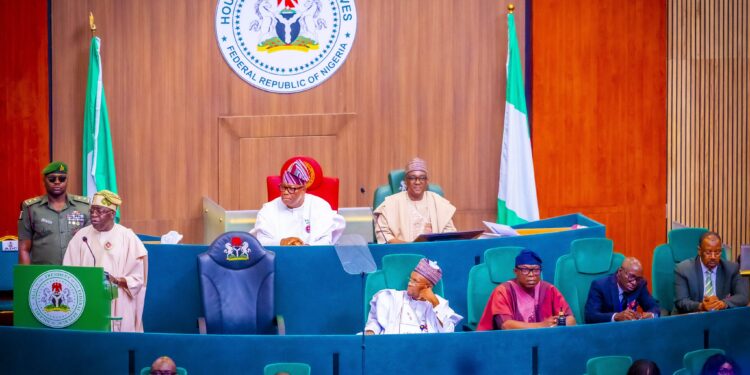Business
PDP Claims Tinubu’s N49.7 Trillion 2025 Budget Will Exacerbate Unemployment and Inflation

The People’s Democratic Party (PDP) has claimed that the N49.7 trillion 2025 federal budget presented by President Bola Tinubu “will worsen unemployment and inflation rates and push millions more Nigerians into abject poverty and invariably heighten insecurity.”
This was disclosed by the opposition party in a press statement on Wednesday by Honourable Debo Ologunagba, PDP, National Publicity Secretary.
The PDP’s alleged that given the “crippled national productive sector,” with the expenditure, including N15.8 trillion provision for debt services, the projected N34.8 trillion revenue with a deficit in trillions will be allegedly financed by “excruciating taxes and levies on already impoverished citizens and companies operating in the country.”
“The 2025 budget as proposed will shrink our national business environment, further cripple the productive sector, discourage domestic and foreign investors, lead to further depreciation of the Naira, worsen unemployment and inflation rates, and push millions more Nigerians into abject poverty and invariably heighten insecurity,” the PDP maintained.
Related News:
- Tinubu Presents N49.7tn 2025 “Restoration Budget” to National Assembly
- Why Tinubu Made Wike Minister -Akpabio
- FG Prioritizes Debt Servicing Over Capital Expenditures in 2025–2027 Budget
2025 Budget Should Be Rejigged by NASS
The PDP argued that the budget is insensitive towards the plight of Nigerians as it allegedly made no meaningful provisions and investments for critical productive sectors of agriculture and food production, electricity, petroleum and gas, and small and medium scale enterprises, which are the real drivers of the national economy.
“The PDP is dismayed that instead, the budget speech was an assault on the sensibility of Nigerians when Mr. President claimed that the 2024 budget recorded a bogus 85% performance without a breakdown of the component between recurrent and capital expenditure.
“Further distressing is President Tinubu’s claim that the economy improved under his watch even in the face of acute poverty, excruciating hardship, comatose infrastructure, collapsed productive sectors, deteriorating value of the Naira, alarming 34.6% inflation, and 40% unemployment rates in the last 18 months as validated by official figures.
“Equally ludicrous is Mr. President’s voodoo economy claim that the 2025 budget will reduce the current inflation rate from 34.6% to 15% and improve the value of the Naira from approximately N1,700 to the Dollar to N1,500 without any indices for tangible investment in the productive sector and in the face of a staggering N134.3 trillion ($91.3 billion) debt accumulated under the APC watch,” the statement partly reads.
The PDP called on the National Assembly not to pass the 2025 budget as presented but to activate its legislative powers as guaranteed under Sections 80, 81, and 82 of the 1999 Constitution to rejig the budget and make provisions that are critical and pivotal to the growth of the economy and the welfare of Nigerians.
Note
On December 18, 2024, President Bola Ahmed Tinubu presented the 2025 “Budget of Restoration” to the National Assembly.
The budget proposals are based on the Medium Term Expenditure Framework, which was previously submitted to the National Assembly in November 2024.
President Tinubu announced that by the third quarter of 2024, Nigeria had generated N14.55 trillion in revenue, which represents 75% of the annual target. Government spending for the same period stood at N21.60 trillion, accounting for 85% of the planned expenditure.
The President acknowledged the challenges faced in both global and domestic economic environments but emphasized his administration’s efforts to drive Nigeria’s economic recovery and growth.
Tinubu expressed confidence that public investments would continue to stimulate the economy, stating, “While challenges persist, we have improved revenue collection and met key obligations. The transformational effects of these efforts on our economy are beginning to be felt.”
He also highlighted the importance of increased government spending on infrastructure, security, and human capital development as critical to fostering growth and recovery.
